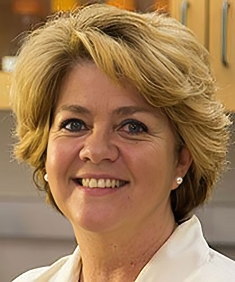
The researchers studied bacteria, fungi and microscopic life, including small parasites. These microbes live with humans — on and in our bodies, and in our homes and workspaces. While some cause problems for people, others, like the yeasts and molds that help make beer and cheese, are helpful.
To compare the diversity of microbes, they sampled from four locations in increasingly urban settings: from thatched huts in a rainforest community, to city apartments in the Amazonas state capital of Manaus. The researchers swabbed surfaces such as walls, floors and countertops in homes, and they took skin swabs from pets and people.
"We create the built environment with so many artificial materials," says Maria Gloria Dominguez-Bello, a professor of microbiology and health at Rutgers University and a co-author on the study. "We are living enclosed in houses with decreased bacterial diversity from the environment, and increasing the diversity of chemicals that we observe."
Some of the bacteria we're shutting out are probably helpful to humans, like good gut bacteria. The different chemicals and fungi were found not just in homes, she says, but on the skin of human bodies.
Read the full article at NPR